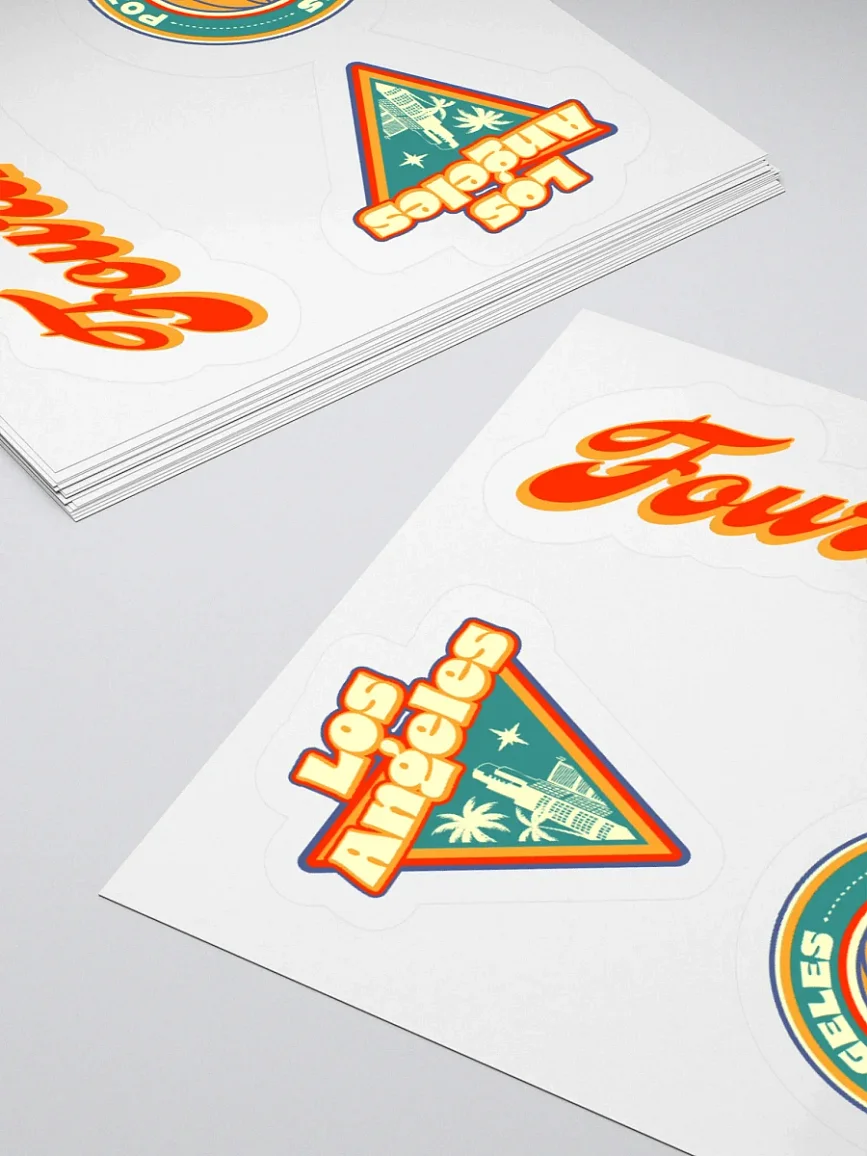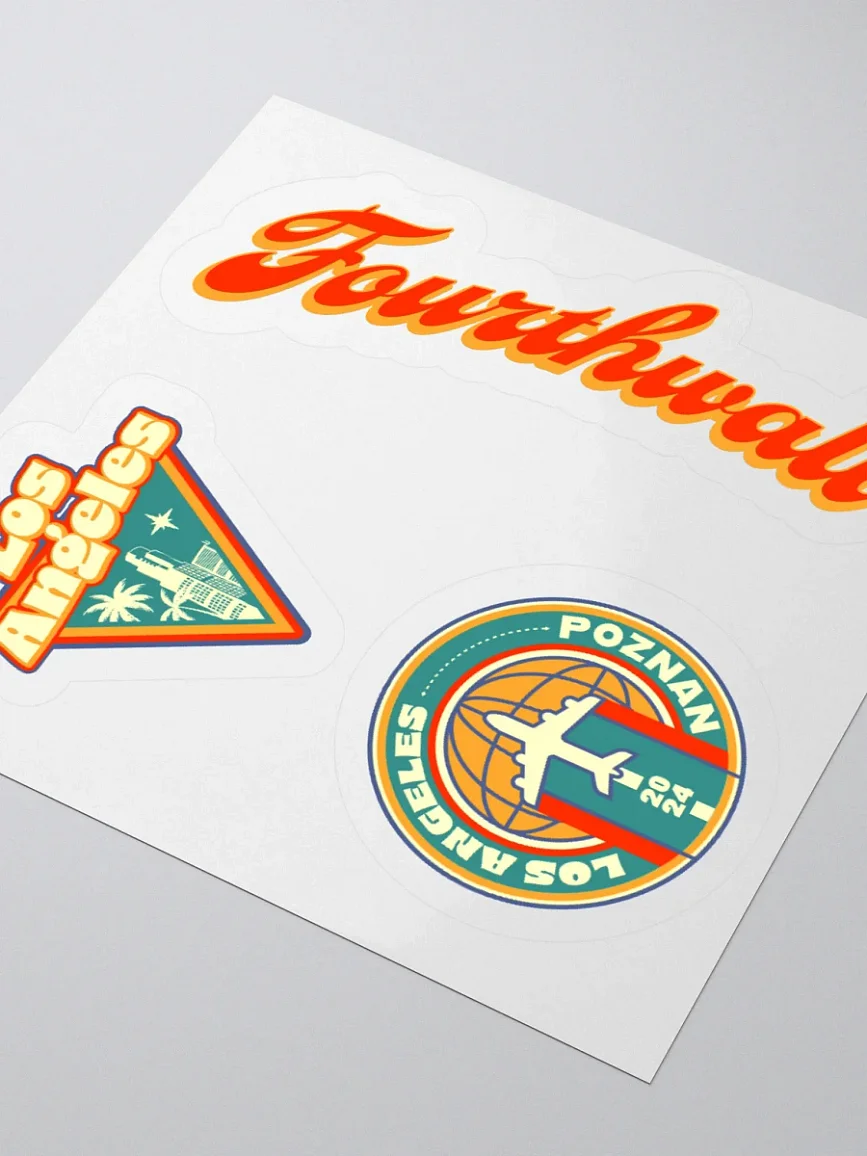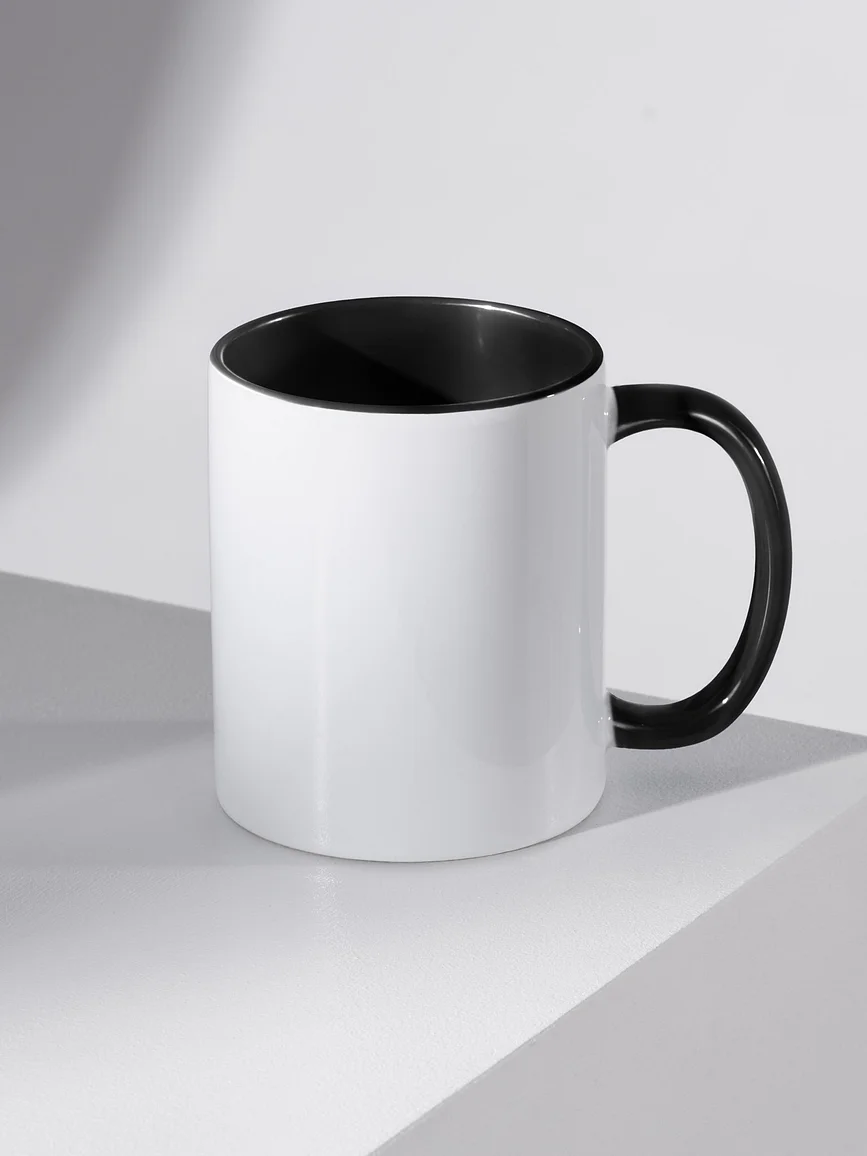Great Merch Websites to Empower Your Sales

Twitch channel branded merch, YouTube merch, music and band merch, artist offerings, podcast logo merch - selling merchandise is such a great way for content creators and influencers to generate income and promote their brands! And ecommerce merch websites offer easy and efficient ways to create, showcase, and sell your custom products and solidify your brand by offering fun, exciting merch that your supporters and fans will want to buy, collect, and show off!
The three main steps in launching your own merch shop are to design and customize your products, keeping your brand in mind; decide how you're going to fulfill and ship those products by choosing a merch maker with the best print quality; and choose an ecommerce platform to host it all.
Let's check out the various merch websites and POD companies available on the market from Printify to Printful, Teespring, Spreadshirt, Spreadshop, and of course Fourthwall - and we'll go over all of the points you should consider when choosing the headquarters for your amazing new merch store.
What Exactly Is a Merch Website?
A merch website is an online ecommerce platform that provides a space for content creators, musicians, influencers, artists, designers, and business owners to showcase and sell their custom-designed merchandise to their audience. Many are primarily POD companies, or print-on-demand companies. These websites offer comprehensive solutions for managing the design, production, and fulfillment of custom products.
Key Features of a Merch Website
Product design and customization
Most merch websites offer a product catalog of custom products such as t-shirts, hats, mugs, phone cases, and more. Creators can upload their designs and customize the products, including changing the color and adding text or images; most of these sites have templates or easy to use design tools, so you can create unique custom merch even without professional graphic design experience.
Sites like Fourthwall even let you combine the best print-on-demand custom items and digital products with your own outside or DIY merchandise, so you can really maximize your store's offerings!
If the site (as Fourthwall does) offers premade mockups (photo examples of your product designs on the actual products and/or on models), that's yet another time saver for you, and helps your customers visualize what your actual merch will look like; mockup generators are great for helping you design, as well.
Order fulfillment and shipping
Print-on-demand, or POD companies, are the optimum way to run a custom merch store for most content creators; this means that you'll design and list your custom products, but you won't need to keep inventory or do any shipping; your products are only created, packed, and shipped as people order them. Once a customer places an order, the POD companies take care of the production process, ideally ensuring that your products meet quality standards, and then packages and dispatches the order to your customer.
Speaking of quality standards, if you want to double-check your merch for yourself to make sure you're getting the best print quality before you sell products, you can order samples of your own custom merch products to see how they look and feel! Fourthwall not only lets you order samples of your merch, but you can also take advantage of special promotions where you can earn sample credits for participating in specific Fourthwall events or referral windows.
Marketing and analytics tools
Many ecommerce merchandising websites offer a range of tools and features that can help you better promote your branded merchandise and sell products. On the marketing and promotions side, those features can include email marketing campaigns, promotional offers, affiliate programs, and social media integration.
You can, of course, also use external tools of these types, but having them integrated into the ecommerce platform of your choice makes your marketing research and promotional efforts much more efficient. Fourthwall offers you your own analytics tab on your Fourthwall dashboard, to make those important stats easy to find and view.
12 Great Merch Websites and How They Work
Merch websites are an important source of income for content creators, providing a platform for them to showcase and sell their merchandise. Let's look at 10 of the best custom merch websites and POD companies available on the market, their key features, and pricing.
1. Fourthwall

Fourthwall enables creators to sell their merchandise in several different ways; as digital products, "bring your own" products, or print on demand custom merch (with over 250 high-quality items in their product catalog to choose from, including white label products) - but that's not all. Creators on Fourthwall take control of their merchandise by choosing and designing the products, similar to other ecommerce websites. But what sets Fourthwall apart is the myriad of other feature-rich creator friendly options they offer, from your own custom homepage and memberships to your own mobile phone app; streaming platform alerts and gifting integrations; and so much more.
Costs: It's free to launch your store on Fourthwall, and you'll pay zero monthly costs. Fourthwall only makes money when you do, and you can set your own prices when selling products to strive for the profit goals that you want!
2. Redbubble

Based in Australia, Redbubble offers over 60 print on demand products ranging from apparel to home decor. The website has a range of design templates for creators to choose from, and it also offers marketing tools such as email programs and special promotions. Redbubble doesn't integrate with other platforms, but it does have a competent marketplace system of its own.
Costs: All Redbubble shopfronts are free, but they do charge a sales fee based on your monthly earnings from your custom merch. You can set your profit margins; the base margin is 20%, but you can raise or lower that amount at any time.
3. Printful

Printful enables creators to design their merchandise via their Printful Design Maker, and then sell it via print on demand. Their website offers a range of over 300 products, including white label products and clothing for kids and adults; hats, footwear, and accessories; and home decor that you can customize in a variety of ways. Printful offers five types of printing and also embroidery; you can also get discounts for ordering products in bulk.
Costs: Printful's pricing system is fairly straightforward, as creators pay for custom merch product costs plus shipping fees; shipping fees are variable, and there are no order minimums or monthly fees for selling products.
4. Spreadshirt and Spreadshop

Spreadshirt offers a user-friendly marketplace website for uploading designs and customizing products, allowing creators to create custom merch from over 200 products. Thousands of visitors browse on the Spreadshirt Marketplace daily, so your Spreadshirt products can be found by anyone. Spreadshop is a newer offshoot of Spreadshirt, and was founded to better cater to creators who want print-on-demand products at their own headquarters; with Spreadshop, you can have a free merch shop and Spreadshop URL that you can integrate into your own website.
Costs: Spreadshirt is free to start, and you make money based on their commission model. Spreadshop is also free to start, and you get paid on commission there as well, but you decide on the profit margins for your items.
5. Spring (formerly Teespring)

Spring (formerly Teespring) is another custom merch website that offers a vast selection of custom products, including t-shirts, hats, and mugs. Spring/Teespring's website's design tool is user-friendly, although the storefront customization is a little lacking; they do provide built-in marketing tools that are quite useful.
Costs: Spring is free to use; you can create an account and upload designs without any fees. Spring keeps a portion of the total sale price of your products, but it's not a percentage; there's a fixed cost for each item on Spring's side, and you set your customer price where you want your profits to be.
6. Threadless

Threadless Artist Shops are a free merch platform where you can build your own customizable storefront (with a lot of design options), upload your art, and sell it on hundreds of print on demand items featured in their product catalog. There's not a lot of discovery here; you're responsible for marketing your products and driving traffic to your custom merch shop, although you can also opt into Threadless' Marketplace for a chance at having your products/designs featured.
Costs: Each Artist Shop has a base cost that's equal to the product cost plus a 5% processing fee based on the price you set for each product. Subtract the base cost from the retail price, and you keep the difference as your earnings.
7. Printify

Printify’s ecommerce website has over 900 products to choose from, with creators customizing their designs using the website's "Product Creator" design tool. Printify charges a commission fee on each sale, and pricing depends on the product type; you can connect your Printify custom merch products to a selection of ecommerce marketplaces.
Costs: Starting on Printify is free; as you grow, you can upscale to a Premium account ($24.99 per month) or an Enterprise account (contact Printify for pricing.) For product sales, you choose your profit margins on Printify, not inclusive of shipping fees, taxes, and other site expenses.
8. Big Cartel

Big Cartel is kind of print on demand; what they really are is an integrated service with the aforementioned Printful and Art of Where supplying products for your to customize. You can have your own shop on Big Cartel using either their free themes or customizing your own; they also offer tools for checking your stats and running promotions. You will, however, have to manage your own shipping, choosing your own shipping carrier or working with Big Cartel's shipping integrations.
Costs: You can start a basic Big Cartel account with 5 product listings for free; then it's $15 per month to host up to 50 product listings, or $30 a month to list 500 products.
9. Society6

Society6 is another print on demand platform that offers around 90 product choices with a strong emphasis on wall art. The website provides a user-friendly interface where creators can design their merchandise and upload to their store; all "Artist Plan" levels include customer support and available worldwide shipping; the highest level also includes webinars and quarterly trend reports.
Costs: You can opt in to Society6's Basic ($4.99 per month) or Pro ($12.99 per month) plans to set your own prices for Society6 products; their Lite (free) plan requires 10% of your net sales. Society6 earns their revenue after they pay for product costs and your commission.
10. Amazon Merch on Demand

Amazon Merch on Demand is an invite-only platform (you need to request an invitation, and not everyone gets approved; you first need an active Amazon seller account) that allows creators to sell custom merchandise, including graphic tees, accessories, and more, all printed on demand with Amazon handling the printing and shipping; the shipping options are the same as any other item sold on Amazon, including available Prime benefits for your customers.
Costs: There are no upfront costs for Amazon Merch on Demand; you earn a royalty on every product sold, which is based on your product's purchase price minus applicable taxes and Amazon's costs (which include production, fulfillment, and customer service.) Amazon provides extensive profit tables on their Royalty Calculation Page.
11. Sellfy

Sellfy is an ecommerce platform that lets creators sell digital downloads, print-on-demand items, physical products, and more all from your Sellfy online store. You can set up your online Sellfy store fairly quickly, with Sellfy's built in print-on-demand tools, meaning you can streamline the process without needing to deal with third party integrations. Sellfy accounts include customizable product pages, marketing tools, and automated fulfillment.
Costs: Sellfy's pricing plans, which don't require transaction fees, start at $22-29 per month for a starter account up to $119 per month for the premium account. You'll also be required to cover payment processing fees for PayPal or Stripe, depending on which gateway you choose.
12. Zazzle

Zazzle offers its own design editor and built in customization options so creators can personalize custom merch products like phone cases, mugs, and apparel; then they handle all of your fulfillment needs, from printing to shipping. Zazzle does have some limitations as far as how much you can brand your sales, but overall it can be another good option for ecommerce merch, especially for those just getting started.
Costs: Zazzle is free to use with no upfront costs, and also offers their Zazzle affiliate program to bring in additional income. You can also manage multiple Zazzle stores under a single Zazzle account.
Partner with Fourthwall and Maximize Your Brand!
Starting a merch store can be a rewarding and profitable next step for content creators - and that's where Fourthwall emerges as a top tier, comprehensive solution, giving creators so much control over the branding and design of their merchandise!
Fourthwall requires no up-front costs, offers the best print quality for your merch, and adds in plenty of user-friendly tools to customize your products and promote them.

Once you have your new customers, you can turn them into superfans with the help of Fourthwall's other features, like your own customized website, video thank-you notes, exclusive content, custom promo codes support, memberships, your own mobile app, Twitch gifting, socials integrations, and more. Why limit yourself to just an ecommerce merch store, when you can have it all with Fourthwall - get your new Fourthwall store started today!
















